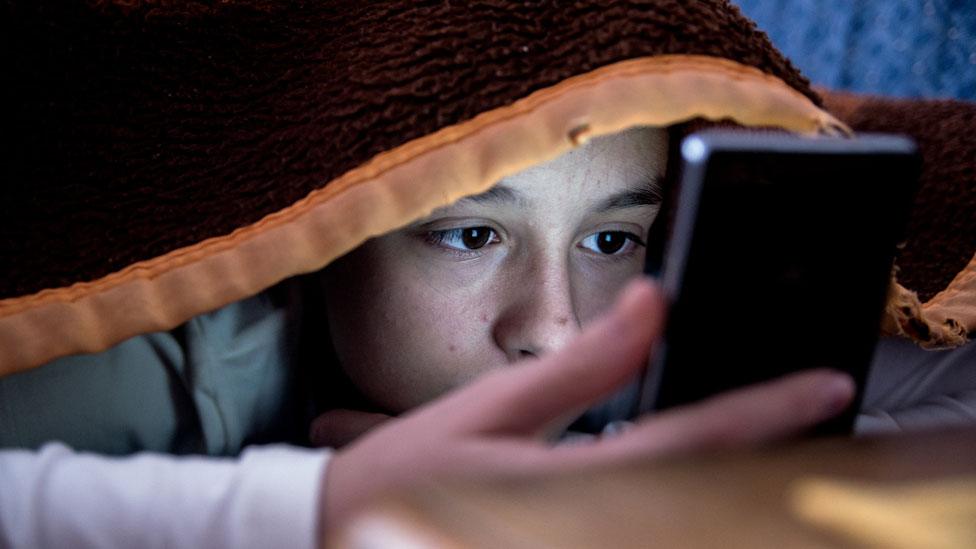Global education rankings to measure tolerance
- Published

The Pisa tests are going to compare countries on how well young people can work together
International education rankings are going to test a very different type of skill next year.
The Pisa tests, which compare teenagers' ability in reading, maths and science, for the first time are also going to test "global competence".
It's a significant departure to move from maths puzzles and literacy tests to asking questions about fake news, global warming and racism.
The inaugural tests for global competence will take place in about 80 countries next year - and the results are going to be pushed centre-stage in the following round of Pisa rankings.
The tests, run every three years by the Organisation for Economic Co-operation and Development, have become among the most widely used measures for global education standards.
And for each round of tests, one subject is chosen as the headline measure used to construct the international league table.
That lead subject is going to be the new global competence tests, when the results of tests taken in 2018 are published in 2019.
It could mean a very different set of countries at the top of the rankings, rather than the current cluster, which includes Singapore, South Korea, Finland and Canada.
Tackling extremism
But how do you assess global competence? What does it actually mean?
This week the OECD set out its framework for the new test and the thinking behind its introduction.

The tests want to see whether young people can recognise fake news on social media
It's intended to find out how well young people can understand other people's views and cultures, how they can look beyond the partisan echo chamber of social media and distinguish reliable evidence from fake news.
It's a challenge to intolerance and extremism.
Andreas Schleicher, the OECD's director of education, says that international promises about the right to "quality education for all" now have to mean more than the "foundation knowledge" of maths, reading and science, it also needs to be about "learning to live together".
The economic think tank says there has been so much "indiscriminate violence" in the name of ethnic or religious differences, that young people need to be taught about living alongside people of other cultures.
There are other driving factors, says the OECD, including the debate about immigration and refugees and the polarising impact of social networking, where people can be disconnected from anyone not sharing their views.
"It will help the many teachers who work every day to combat ignorance, prejudice and hatred, which are at the root of disengagement, discrimination and violence," says Mr Schleicher.
Climate change
The tests want to find out how well students can critically examine local and global contemporary issues and how well they can understand "multiple cultural perspectives".
As an example, the OECD suggests a question about different interpretations of evidence for global warming, in which the same information seems to have been used to produce charts supporting and opposing claims about climate change.
Students are asked to analyse the evidence and to question how data might be used selectively or how the findings of research can be influenced by whomever has funded it.

More from Global education
Ideas for the Global education series? Get in touch.

Another set of questions are based on a scenario in which a team loses when a player walks off the pitch after getting racist abuse. Should the player have stuck it out rather than leaving the team a player down?
It's meant to raise questions about identity, responsibility, regulations on behaviour and the politics of the crowd.
As well as questions, there will also be information gathered about students' attitudes towards people from other cultures, interest in other countries and languages, global inequality and the environment.
But this is difficult territory - and a long way from the neater clarity of a maths answer.
Testing values
International rankings have tended to be based on subjects where comparisons in results are more straightforward.
This latest set of tests talks about "valuing human dignity and diversity" and the "need to live harmoniously in multicultural communities".

The OECD says young people need to be able to navigate a globalised culture
It's a much more culturally loaded proposition.
But Mr Schleicher says young people need to navigate a globalised economy and to communicate and empathise with people from different countries and backgrounds.
There's also a more assertive underlying message of internationalism and cultural openness.
The OECD's origins lie in the reconstruction efforts in the "rubble of Europe after World War Two", part of a drive to bolster international co-operation, market economies and democratic institutions.
It is now literally putting these values to the test.